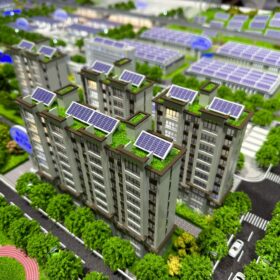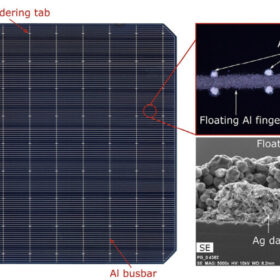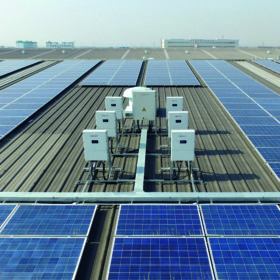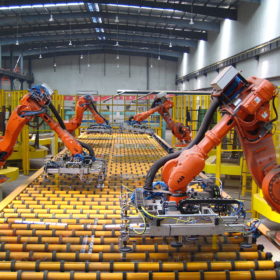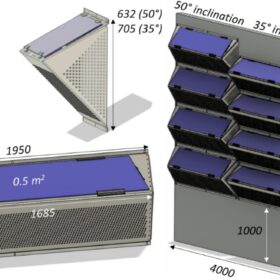Nepal allocates 960 MW in PV tender with lowest bid of $0.037/kWh
The Nepalese authorities had originally planned to allocate 800 MW of PV capacity through the procurement exercise. The 64 selected projects range in size from 5 MW to 50 MW.
Bahrain launches tender for 44 MW solar plant
The solar project is planned to be located at the University of Bahrain’s campus.
Global PV demand to hit 469 GW and 533 GW this year, says PV Infolink
PV InfoLink says that Chinese solar demand will reach between 240 GW and 260 GW this year, while European demand will hit 77 GW to 85 GW.
Solar cells built on dots and dashes of silver
A team from the University of New South Wales (UNSW) School of Photovoltaic and Renewable Energy Engineering has reinvented the design of screen-printed contacts to reduce costs and silver consumption, without sacrificing the efficiency of tunnel oxide passivated contact (TOPCon) solar cells.
Pathway to Singapore’s solar development
Singapore could import large quantities of low-cost solar power from neighbouring countries using undersea cables, with the indicative cost being competitive with gas generation. Unlimited world-class pumped hydro energy storage is available in neighbouring countries in the range 50-5000 GWh to support very large scale transmission.
Two-layer power trading mechanism to support distributed solar
Researchers in China have proposed a new hybrid transaction model for distributed power trading. The model encourages the participation of aggregators in market transactions for distributed resources and promotes the expansion of distributed energy storage.
India may introduce antidumping duties on PV glass from China, Vietnam
India’s Directorate General of Trade Remedies (DGTR) has proposed antidumping duties on solar glass imports from China and Vietnam. It says the landed cost of such imports aew lower than the selling prices and production costs of Indian manufacturers.
Photovoltaic noise barrier with ZigZag design
A Belgian-Dutch research group has designed a PV noise barrier that reportedly offers a good performance in terms of power yield, drivers’ safety and noise cancellation. Its payback time was estimated at between 6 and 10 years.
Hail-prone Texas solar project cuts insurance costs 72%
A case study by kWh Analytics demonstrated the value of building a resilient, weather-hardened solar facility.
Chinese PV Industry Brief: Solar module exports hit 54.9 GW in Q3
China’s solar module exports fell to 16.53 GW in September, down 12% from August and 16% year on year, according to PV InfoLink. Third-quarter exports reached 54.9 GW, a 15% drop from the second quarter, but a 6% increase from the third quarter of 2023.


